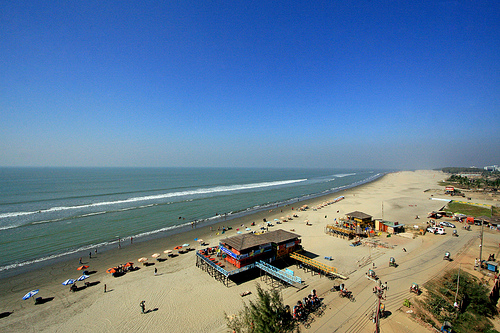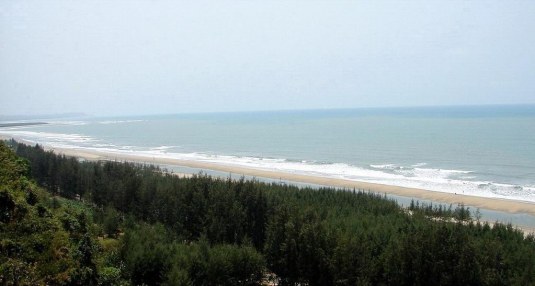My last post, which I shared from a newspaper, has narrated the fact that the Bangladesh Awami League party is planning to engage a Harvard professor to conduct publicity campaign across the country ahead of the next parliamentary elections. I did not make any comment in that post but here I would like to dare in this one.
As a political reporter for long 6 years (in UNB and bdnews24.com), I have covered the Awami League party and followed its chief Sheikh Hasina in particular. Someday, I wish to write in details about my time and what I have seen inside the party as well as what did not escape my eyes while I was a regular visitor at Shudha Sadan (Sheikh Hasina’s residence) as a journalist. Let’s jump to the point now!
I had had the opportunity to see Sheikh Hasina from a close proximity while she was the Opposition Leader in Parliament. I must admit she is a very good communicator and quite close to her father. I have seen how she used to manage the party. A good number of incidents are still popping up in my mind as I am writing now. Now, her son Sajeeb Wazed has made some headlines in the recent days and one of his particular steps has caught my eyes. Engaging a Harvard professor to conduct publicity campaign for the party. Why?
I remember the day when Mr. Joy made a public speech in a programme at National Press Club and the programme was arranged by Awami Jubo League. I can remember the day of the year 2005 because veteran Awami League leader and former Foreign Minister Abdus Samad Azad died on that day and that’s why I guess, Joy’s interesting speech did not get much coverage in the media. What he said in that meeting sums up like this: ”the country is like a company and the company should be run considering whatever is profitable for the company. The country should be governed considering its profit and loss.” I found his speech really insightful.
There was a research wing of the party named CRI and I knew the men who used to work for the wing. I knew the CRI was behind many Political Communications outputs the party had made. However, I have not heard of its activities in years. Recently, I went to the Bangladesh Secretariat and met a very good friend of mine who used to work for the CRI. What he told me that he too did not hear anything whether the CRI exists or not.
Being a student of communications, my understanding about political communication is that it must never stop. It should be a continuing effort. And it will carry out the policy, translating the policy to those who are the electorate. But the policy and the propaganda must go hand in hand. Many would doubt if the policy measures of the Awami League party in the last four and a half years were explained properly. There are hundreds of examples. Awami League leaders were found many times saying that they had many achievements but unfortunately those were not properly propagated. Its not the fault of those who are opponents of the party doing propaganda against it, but its their faults by not doing enough- one may argue.
Now if a Harvard professor comes and he does take the responsibility of the campaign and if (hypothetically speaking) the party loses, everyone will blame the poor Harvard guy. No one will realise that the vacuum created in course of time attracted information, misinformation and disinformation by the opponent of the party and the whole info-sphere is now filled with anti-Awami League propaganda. And needless to say that those propaganda were much more effective, much more smart and much more focused in achieving their targets.
If one studies the Bangladeshi media, analyse speeches by opponent politicians and the political process that the Awami League is trying to influence, as well as the other important actors outside the media and politics, it will be clear that it is not a level playing field. Besides, there are formal and informal conversations among the public in different spheres which are also shaped in line with issues that are unpleasant to the ruling party.
I think it will be gigantic work if one wants to influence the current political environment in favour of the Awami League party. Public discussions such as political speeches, media coverage, and whatever the ordinary people are talking about, it will be very interesting to see how the party will do it with the help of the Harvard professor. I will be eagerly monitoring the both the content and the strategy, both of which will be very significant. I am sure, Bangladeshi information sphere is now in such a state in which influencing public knowledge and beliefs will be really hard.
Key election issue in Bangladesh since 1991
Democracy was the triumphing issue of 1991 election when people voted for BNP because they were successful in conveying their message. In 1996, the issue was caretaker government. Awami League triumphed on that issue as they had mobilsed public opinion in favour of that and people voted for it after lots of hassles. The issue was so strong that other top issues for public measurement were far behind it. In 2001 election, BNP used ‘terrorism of Awami League’. They singled out some key Awami League leader such as Joynal Hazari and so on and the propaganda clicked in the election. In 2006, the issue was ‘reform’. Since the election did not take place, Bangladesh continued to witness so much of reforms in the next two years. Thereafter when the election took place, the triumphing issue was actually ‘corruption by BNP and Tarique Rahman’ which left ‘reform’ and ‘change’ behind. So what’s next?
My belief is religion will be the key election issue this time. Not corruption, not nepotism, not India-factor and nor even Younus or anything else. Who protects Islam more strongly than the other will guide the agenda for both the major party or the alliances. It will be really interesting to see how the Harvard professor deals with it.


